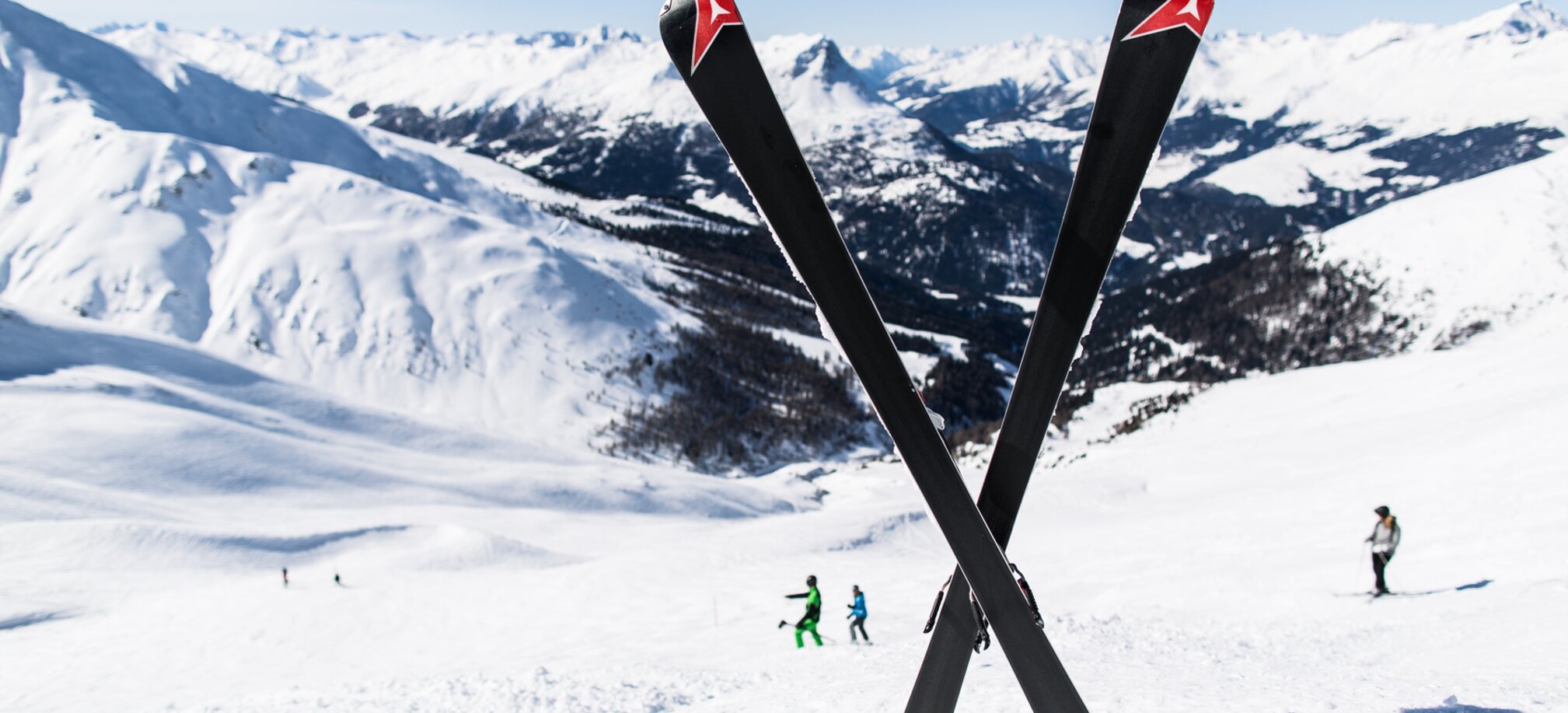All it takes is a moment's inattention, a sudden unexpectet movement of the ski or a small wave and you could find yourself in hospital.
So it can happen quickly. That's why I looked into the question: Which insurance should skiers definitely take out: an interview with expert Denise Cullu from Allianz Insurance.
How to act in the event of a ski accident
First, you should mark the accident site with crossed skis or ski poles to warn approaching skiers. Then secure the injured person and check: Are they breathing? Are they conscious? The next step is to call for help. In the Alps, the emergency number is 112 for general emergencies and 140 for mountain rescue in Austria. Then provide first aid:
If the injured person is unconscious but breathing normally, place them in the recovery position. If they have stopped breathing, immediately start resuscitation (cardiopulmonary resuscitation). Stop any bleeding and tend to injuries until help arrives.
If you are the one injured in a ski accident, and your condition allows, try to follow these steps to ensure your safety and get help: try to stay calm and assess the situation. Check for serious injuries, such as fractures, unconsciousness, heavy bleeding, etc., and call for help or use your phone to call for assistance. If you have serious injuries, lie still and avoid moving to prevent further harm. Once others arrive to assist, clearly communicate any pain or issues you’re experiencing. It’s also helpful to note details from witnesses, the accident site, and take photos if possible, then report the incident at the lift station or to the slope personnel. Additionally, report the accident to your personal accident insurance provider as soon as possible, including all relevant medical documents.
Which insurances should local and international winter tourists have?
To be fully covered for a winter vacation, we recommend liability insurance, accident insurance, and travel insurance. International tourists can also obtain "visitor insurance," a health insurance policy for residents from outside the Schengen Area or EU who are visiting.
When do I need liability insurance? When does health insurance or accident insurance apply? And what do they cover in a ski accident?
If you cause a ski accident that injures others, your personal and sports liability insurance – often included in a household insurance policy – covers third-party injuries, property, and financial damages, though it does not cover personal injuries.
While public health insurance covers treatment costs in cases of accident and illness, it does not typically cover any subsequent consequences (such as disability). It also does not provide lump-sum or annuity payments.
Private accident insurance, on the other hand, covers rescue costs, accident-related expenses (such as dental replacement, therapy, or specialized surgeries), and the cost of assistive devices. In cases of permanent disability, insured individuals receive a lump-sum payment that can help cover necessary adjustments, such as home or car modifications, to maintain their standard of living.
Travel insurance is also recommended. Allianz travel insurance, for instance, includes trip cancellation coverage, reimbursing costs for unused travel services in cases of sudden severe illness, accident injuries, or other incidents endangering personal safety at the travel location.
So, does travel insurance cover a weekly ski pass if I get injured on the first day?
Yes. Trip cancellation insurance covers the cost of unused travel services due to sudden severe illness or accident injuries.
What about expensive transport costs, like helicopter or sled rescue?
The average cost for an air rescue mission is around €4,000. The Austrian Health Insurance Fund (ÖGK) states: “Rescue costs and transportation to the valley are not covered for accidents during sports and tourism activities. We recommend making the necessary provisions, as an emergency can quickly lead to a major financial burden.” My accident insurance, the Allianz Accident Insurance, covers search, rescue, and repatriation costs up to €15,000, starting from the basic package.
What coverage is included in credit cards, the ÖAMTC Travel Assistance, and an Alpine Club Membership?
Many credit cards include travel insurance, though specific conditions may apply: the card must be used regularly, maintain a minimum spending threshold, and be used to pay for the trip shortly before departure. Coverage and benefits vary by provider, so it’s best to check with your bank beforehand.
Alpine Club members are automatically covered for rescue costs, and their membership also includes liability and legal protection insurance for sports. The ÖAMTC (Austrian Automobile Club) travel assistance package includes helicopter rescue, medical repatriation, and travel home after an accident. Be sure to check each provider for exact coverage details.
Do I share responsibility if I suffer a head injury while not wearing a helmet? Would the insurance still apply?
In nearly all federal states, a helmet is legally required for skiing up to age 15. Whether the insurance applies depends on the insurer’s terms and conditions. Allianz accident insurance, for example, does not require skiers to wear a helmet, so full compensation applies. However, we strongly advise every skier to wear a helmet for safety. Allianz also offers a helmet bonus for children to encourage helmet use.
What if alcohol is involved? Will insurance still apply?
Whether insurance covers a ski accident involving alcohol depends on the specific policy and accident circumstances. Some policies include clauses that exclude coverage for accidents under the influence of alcohol. It’s advisable to review your insurance terms before a ski trip and avoid drinking while skiing to minimize risks.
Remember to check your insurance policies before your next ski vacation – this way, you’re well-prepared for any incidents and can fully enjoy the winter fun.
(The content published in this article has been carefully compiled but makes no claims to currency or completeness. No warranty is provided.)


